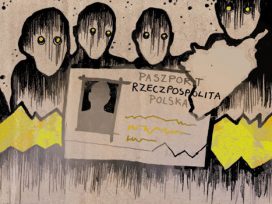Since the Kaczynski brothers’ political ascendancy at the head of the Law and Justice Party (PiS), there has been a string of developments that have alarmed Poland’s EU fellow-members: the election of a civil rights spokesperson who openly advocates the death penalty; plans to close down the body that monitors the independence of the media; a law drafted that would abolish the autonomy of the civil service, to name but a few. To understand how this situation arose, one needs to look more closely at the period of change in Poland since 1989. The “radical” government stems from that section of the Solidarity movement opposed to the route transformation took; for the radicals, the reckoning with the ancien regime has been insufficient, leading to a system they view as a pathological symbiosis of communism and capitalism, democracy and a post-communist mafia. The cultural traditionalism of the PiS, writes Smolar, has landed on fertile ground in a contemporary Poland suffering from social alienation, distrust in democratic institutions, high unemployment, and growing income discrepancies.



